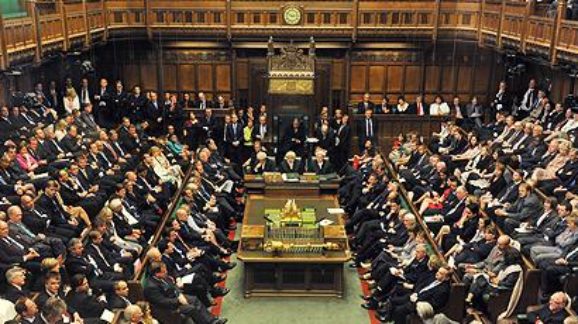UK Climate Campaigners Demand More Market Rigging

 Members of Parliament in the United Kingdom “are warning of a ‘dramatic and worrying collapse’ of clean energy investments in Great Britain in the last three years,” the Financial Times reports. While the UK’s share of low-carbon energy roughly doubled in the last decade, “the government’s annual investment in clean energy fell 10 percent in 2016 and an additional 50 percent last year.” Labour Party MP Mary Greagh frets that the “dramatic fall in investment is threatening the government’s ability to meet legally binding climate change targets.”
Members of Parliament in the United Kingdom “are warning of a ‘dramatic and worrying collapse’ of clean energy investments in Great Britain in the last three years,” the Financial Times reports. While the UK’s share of low-carbon energy roughly doubled in the last decade, “the government’s annual investment in clean energy fell 10 percent in 2016 and an additional 50 percent last year.” Labour Party MP Mary Greagh frets that the “dramatic fall in investment is threatening the government’s ability to meet legally binding climate change targets.”
The foregoing typifies a persistent feature of climate change advocacy. Unless government rigs the market in favor of “clean energy investments,” it cannot meet “legally binding climate change targets.” Implication: As the targets ratchet, so will efforts to rig the market.
An article in the Guardian spotlights the other side of the equation. To boost the market share of “clean energy,” government must also penalize or ban fossil fuel investments. Such penalties can come in many forms, not only the obvious ones like carbon taxes and cap-and-trade, but also interminable environmental reviews and permitting delays.
Britain’s Department for Business, Investment, and Industrial Strategy recently published a proposal to weaken the grip of “underperforming local planning authorities that repeatedly fail to determine oil and gas applications within statutory timeframes.” The Department seeks to expedite environmental reviews of onshore hydraulic fracturing projects. The proposal notes that fracking operations have “the potential to deliver substantial economic benefits to the UK economy and for local communities . . . by creating thousands of new jobs directly in extraction, local support services, and the rest of the supply chain.”
The Department states that it “strongly believe[s] that communities hosting shale gas developments should share in the financial returns they generate. The Government welcomes the shale gas companies’ commitment to make set payments to these communities, which could be worth up to £10m for a typical site. Actions to support local communities are an important complement to the planning actions set out above. With that in mind, we want to go further, and we will work with industry to see how we can improve this offer.”
Thanks in part to offshore natural gas production, which is now declining, the UK has “had competitively-priced energy since 1990 whilst reducing carbon emissions across the economy by 49 percent—a leading performance among developed nations.”